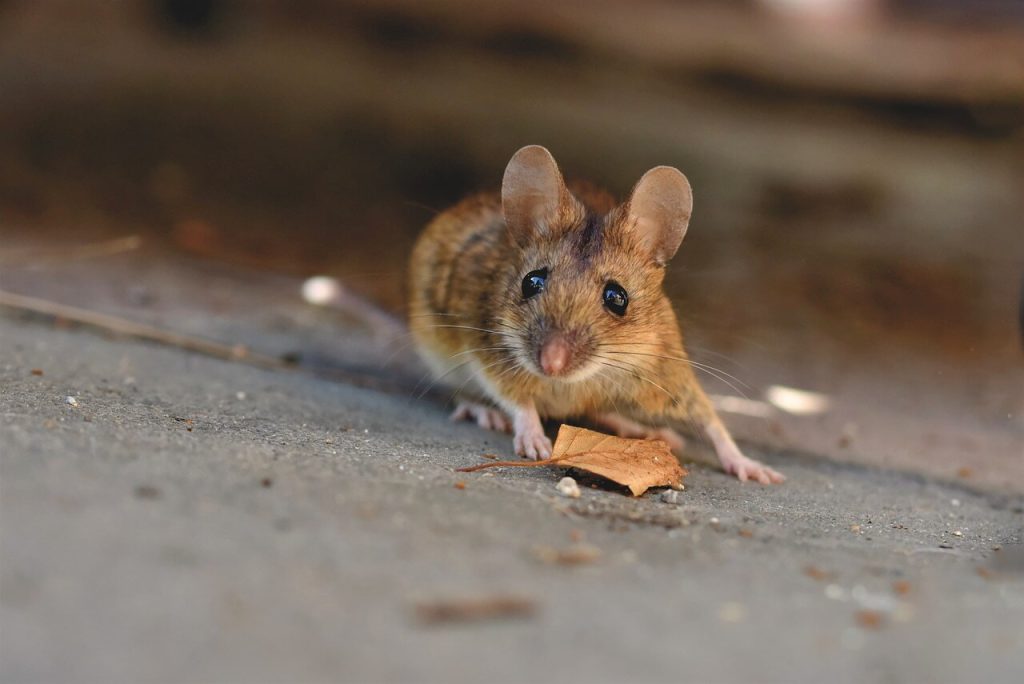The mere sight of a rat or mouse in your home or business can cause you to shriek. We’ve talked about the types of rodents that are common in SW Washington and Oregon. Now, let’s dive into an important topic – the various health hazards rodents pose to humans. We’ll also cover diseases transmitted by rodents, allergies, and respiratory issues. And as a bonus, we’ll give you some tips on rodent removal and prevention.
Types of Rodent Diseases
Rats and mice can spread diseases to you and your family. Here are some types of diseases caused by rodents.
Hantavirus
Hantaviruses are a family of viruses mainly transmitted by rodents. In North America, it can cause Hantavirus pulmonary syndrome (HPS), a rare but severe, sometimes fatal, respiratory disease in humans. Here in SW Washington and Oregon, deer mice are the main carriers of the Hantavirus that infects people. According to the CDC, rodent infestation is the primary risk for hantavirus exposure.
Leptospirosis
Leptospirosis is a bacterial infection caused by Leptospira bacteria. This bacteria can affect humans and animals, including your pets. Rodents carry this bacteria and pass it in their urine. The most common causes of human infection are soil or water contaminated with infected urine. According to the CDC, there are a wide range of leptospirosis symptoms, and many can be mistaken for other diseases. Without treatment, leptospirosis can lead to severe illness and even death. The best way to prevent leptospirosis infection is to keep rodent problems under control.
Plague
Plague caused by the Yersinia pestis virus. In the Western part of the U.S., it’s carried by small animals and their fleas including rodents. Humans can be infected by a flea bite or direct contact with a sick animal. Remember, the risk of getting plague is very low. Reduce the risk of exposure by rodent-proofing your home, protecting your pets with flea-control medication, wearing gloves when handling dead animals, and using insect repellant.
Rat-Bite Fever (RBF)
RBF is a contagious illness caused by two distinct types of bacteria. In North America, the bacteria responsible for this illness is called Streptobacillus moniliformis. People typically become infected in two ways – coming into contact with infected rodents or food or water contaminated with the urine and droppings of rodents carrying the bacteria. This is known as Haverhill fever. According to the CDC, RBF can be serious or even fatal. Avoid direct contact with rodents or areas where there are rodent infestations.
Tularemia
Tularemia is a bacterial disease caused by Francisella tularensis bacteria. It affects people and animals, including pets. It’s transmitted by tick or deer fly bites or handling infected animals. Tularemia can be life-threatening, but it can be treated using antibiotics. Prevent tularemia by using insect repellent, wearing gloves when handling sick or dead animals, and avoiding mowing over dead animals.

Rodent Prevention Tips
The best way to prevent rodents is to make your home less attractive for them. Here are some tips for rodent prevention:
- Seal entry points. Rodents are small and can fit through small spaces. Take note of potential entry points (e.g., your siding and where utilities meet your home) and properly seal them with silicone-based caulk. Also, install a chimney cap and apply weather stripping along your window sills and door sweeps on your exterior doors.
- Properly trim trees. Make sure tree branches are at least 5 feet away from your home. Rodents are skilled climbers, especially roof rats, which are common in the Pacific Northwest.
- Trim back landscaping. Prune bushes or shrubs near your home, especially near the doorway. Rats and mice use vegetation as harborage.
- Maintain cleanliness. Rodents and other pests are attracted to crumbs, food scraps, and water. Make your home less inviting to these pests by regularly wiping down counters, and sweeping and mopping floors. Also, don’t leave pet food out all day, even if it is outside.
- Eliminate debris. Abandoned equipment, rock piles, straw, and wood piles are attractive to mice and rats. Clean up any debris on your property and store your firewood at least 20 feet away from your home.
- Properly seal trash cans. Seal lids on trash cans, clean them and store outdoor trash cans away from your home.
Signs You Have a Rodent Infestation
Preventing rodent infestation is important for preventing diseases spread by rodents. Common signs that you have rodents and mice in your home include:
- Droppings
- Foul odors
- Gnaw marks
- Live or dead rodents in your home
- Rodent tracks/runways
- Scratching noises
- Unusual pet behavior
Identifying signs of rodents in your house could help you spot an infestation before it can cause too much destruction.
Rodent Removal Tips
The first step in rodent removal is prevention. There are also rodent removal solutions that you can purchase at the store including snap traps, electronic traps, glue traps, and poison baits. Each solution has its positives and negatives, but if you don’t want to handle rodent removal yourself, or if the rodent infestation is severe, contact a professional pest control company near you.
There are many reasons why you should hire a professional to get rid of rodents in your home:
- They can identify which type of rodent has infested your home and take the proper steps.
- They’ll be able to clean up heavily contaminated areas to prevent diseases like HPS.
- Rats and mice breed quickly. This means an infestation can grow quickly, too.
- They can help prevent future infestations aka they will help you keep rodents from coming back.
- They specialize in humane, eco-friendly pest control and removal.
Rodent Control In Portland, Vancouver, Olympia, And Kelso
Interstate Pest Management is a local rodent and pest control company. All of our exterminators are QualityPro certified, and we use organic products that work harmoniously with the environment instead of causing undue harm and stress. Get in touch with us here or call us at (503) 832-4997.